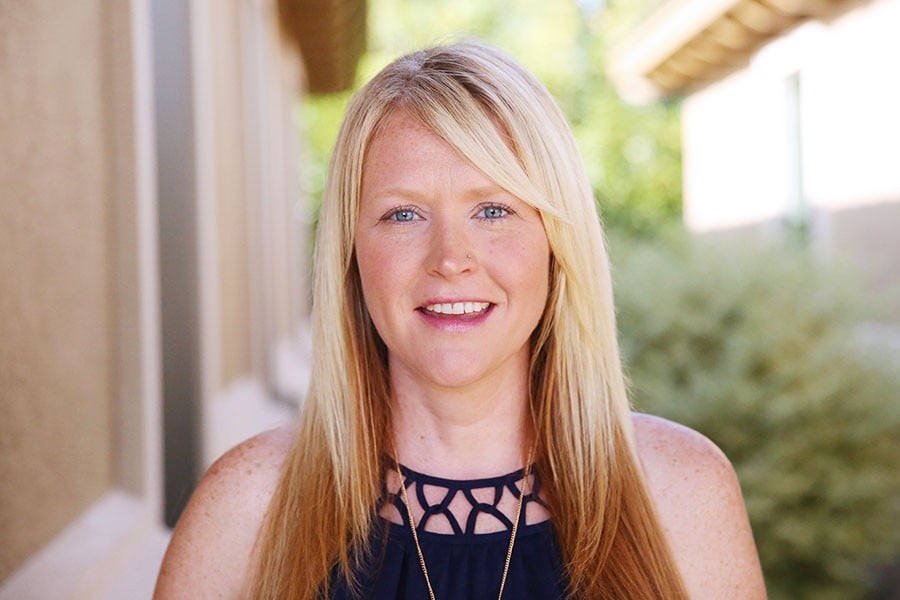How to Move Forward if You’re Getting Divorced but Still in Love

 Listen to this article
Listen to this articleDivorce is never easy, even when it feels like the right decision.
But what happens when you’re facing the end of your marriage while still carrying a flame for your partner?
It’s a confusing, heartbreaking situation… a complex mix of grief, love, and uncertainty.
How do you walk the path forward when your heart is pulling you in one direction and life is taking you in another?
How do you reconcile the love you feel with the reality of separation?
And how can you begin to heal and rebuild when a part of you still yearns for what was?
It’s a difficult journey, but you don’t have to go through it alone. How to move forward if you’re getting divorced but still in love is a question many grapple with…
Is it normal to feel attached even when you’re getting divorced?
Divorce is rarely black and white; it’s a messy, emotional journey, even when it’s the right decision. It’s perfectly normal to feel attached, even when you’re the one initiating the split.
You’ve built a life with this person, shared dreams, experiences, and a deep connection. Love doesn’t always disappear overnight, even when circumstances change.
So, yes, it’s okay to grieve the loss of what was, even as you’re moving forward. It’s okay to feel confused, to love someone, and yet realize you can’t, or shouldn’t, be with them.
Divorcing someone you love is a unique kind of heartbreak, one that requires patience, self-compassion, and time to heal. You’re not alone if you find yourself divorced but still in love.
7 ways to move forward even if you’re still in love
Moving forward after a divorce can feel overwhelming, especially when love still lingers in your heart.
It’s perfectly natural to experience conflicting emotions during this time; how do you reconcile the love you feel for your partner with the reality of your situation?
While it may seem daunting, there are steps you can take to help you heal and redefine your life. Here are 7 ways to move forward even if you’re still in love.
1. Acknowledge that this is happening
It would be a mistake to pretend that “everything is fine” or try to put on a happy face so that those around you think you’re handling this life change like the strong person you’ve always been.
A study explored how people see themselves during a long divorce process. Interviews with individuals who were at least six months into their divorce revealed that this period involves a disrupted sense of self, challenges in redefining oneself, and the use of coping strategies.
You don’t need to be a hero during this tumultuous time! If you don’t show your friends and family that you’re suffering, they can’t offer to help you shoulder the pain.
Let it out—be honest. Tell them you’re shattered, you love your partner, and you need them to be there for you as you experience this significant life event.
What to avoid:
- Bottling up your emotions; it can lead to bigger issues down the line.
- Minimizing your feelings; don’t tell yourself they’re not valid.
- Avoiding conversations about your situation; isolating yourself can make things worse.
2. Find a support group
There are plenty of community groups where people going through a divorce can connect, talk, cry, and share their stories. It’s helpful to hear that you’re not alone in what you’re experiencing.
Just remember to find a support group guided by an experienced counselor; you want to avoid meetings devolving into a series of complaints without any solution-oriented advice.
This is a crucial step in learning how to deal with divorce when you still love him.
What to avoid:
- Joining groups that focus solely on negativity or blame; you want constructive discussions.
- Attending meetings that don’t have a professional facilitator; unstructured groups can be unhelpful.
- Hesitating to share your own story; participation can lead to deeper healing.
3. Banish negative self-talk
Telling yourself, “I’m an idiot for still loving them after what they did to me!” is neither helpful nor true. You are not an idiot! You are a loving, generous person whose core is made up of love and understanding.
There’s nothing shameful about feeling love for someone who has been your life partner for many years, even if that person made the decision to end the relationship.
So, don’t diminish yourself through negative self-talk—focus on remaining positive.
What to avoid:
- Engaging in harmful comparisons with others; everyone’s journey is different.
- Using harsh language about yourself; kindness toward yourself is essential.
- Allowing others to define your worth; your feelings are valid regardless of outside opinions.
4. Give yourself time to heal
Healing from a divorce, especially one you didn’t initiate, will take time. Recognize that your grief will have its own calendar; some days will be better than others, and there will be days when you feel you aren’t making any progress at all.
Trust in the process.
Those little cracks you see on the horizon?
There is light coming in through them! One day, you’ll wake up and realize that you’ve gone hours, days, or even weeks without dwelling on your ex-partner and what they did.
What to avoid:
- Rushing the healing process; give yourself grace.
- Ignoring your emotions; feeling your feelings is necessary for healing.
- Comparing your healing timeline to others; everyone heals at their own pace.
5. When you’re ready, rid your home of reminders of him
Letting go can be a powerful act! This will help in “casting off” your feelings of love. Remake your home to reflect your tastes.
Have you always wanted a living room done in pastels and wicker furnishings?
Go for it! Sell or give away anything that triggers those wistful thoughts of “how it was when they were here.” This is an important part of learning how to cope with divorce when you still love him.
What to avoid:
- Holding onto items that provoke sadness; they can hinder your healing.
- Keeping things out of guilt; it’s okay to let go.
- Allowing others to dictate what you should keep; this is your space and your decision.
6. Involve yourself in a new and challenging hobby
This is a proven way to feel better about yourself and build new friendships with people who didn’t know you as part of a couple. Check local resources to see what’s on offer.
Have you always wanted to learn French?
Community colleges often have adult education classes!
Maybe you’d enjoy a sculpture or painting workshop?
You’ll keep busy and come home with something lovely you’ve created! Joining a gym or a running club is also a great way to work off any negative thoughts.
Research highlight: Studies show that exercise can positively impact our brains. Because of this, it’s becoming a more common way to help people who are struggling with depression. It is further shown how much physical activity can improve our mental health. This happens because exercise affects some pretty complex things in our brains!
Exercise provides the same mood-lifting benefits as taking antidepressants.
What to avoid:
- Choosing hobbies that feel forced; pick what genuinely excites you.
- Isolating yourself during these activities; share the experience with others.
- Neglecting to celebrate small achievements; every step forward matters!
7. Embrace new opportunities
Consider this a time for transformation! How to move forward if you’re getting divorced can also mean exploring new experiences.
Is there a career change you’ve been dreaming about?
Or perhaps a trip you’ve always wanted to take?
Each new adventure can help you reconnect with yourself and what you truly want in life. Remember, the journey to rediscovering your happiness is a process, but it’s one worth embracing.
What to avoid:
- Shying away from new experiences out of fear; growth often comes from discomfort.
- Sticking to old routines that remind you of your past; be open to change.
- Dismissing your dreams; this is your chance to pursue what truly makes you happy.
What are the challenges you can experience during this transition?
Transitioning through a divorce can bring up various unexpected challenges, especially when love lingers in your heart. This time of change can feel overwhelming and confusing, with emotions pulling you in different directions.
Let’s explore 5 of the most common difficulties you may encounter during this delicate process.
1. Emotional rollercoaster
Divorce often brings a flood of emotions that can seem impossible to manage. One moment, you may feel anger or sadness; the next, there’s guilt or longing. This emotional tug-of-war is completely normal.
When you still love your partner, feelings of regret or confusion can intensify, leaving you unsure about how to move forward. Acknowledging this rollercoaster, instead of fighting it, can help ease some of the pressure.
Emotions aren’t linear, and it’s okay to have days where you feel conflicted.
2. Loneliness and isolation
After years of companionship, suddenly, being alone can feel jarring. You may feel a deep sense of loss, not just for your partner but for the shared life you built together.
Friends and family might not fully understand your unique situation, leaving you feeling isolated. It’s important to reach out for support through a trusted friend or a divorce group to prevent sinking deeper into feelings of loneliness.
Remember, you don’t have to go through this process alone.
3. Guilt and self-blame
Guilt is a common emotion during divorce, especially when you’re still in love with your partner. You might replay moments in your mind, wondering if you could have done something differently to save the relationship.
It’s easy to fall into the trap of self-blame, but it’s crucial to remember that relationships involve two people. Divorce doesn’t mean failure—it’s often a necessary step toward healing and growth.
Understanding how to divorce someone you still love while processing these feelings can help ease the burden of guilt.
4. Adjusting to a new identity
Adjusting to being single can be a huge challenge when you’ve spent years as part of a couple. Your identity may feel tied to your marriage, and now you’re faced with the task of rediscovering who you are on your own.
This shift can initially feel unsettling, but it’s also an opportunity to explore new interests, hobbies, and goals. You are still whole, even outside of the relationship, and this time of transition can be used to rebuild your sense of self.
Watch this video where Rachael Sloan, a certified life coach & NLP master practitioner, shares actionable steps on how to rebuild identity after divorce:
5. Letting go of the past
One of the hardest parts of divorce is accepting that the life you once knew is no longer your reality. Letting go of shared dreams, memories, and hopes for the future can feel like a loss in itself.
You might find yourself clinging to “what ifs” or imagining how things could have been different. But holding on to the past can prevent you from fully healing.
It’s important to gently remind yourself that your future can still be fulfilling, even if it looks different from what you imagined.
Believe that things will turn out positive
Even though this transition is painful, and the road ahead may feel uncertain, it’s important to hold on to the belief that things will turn out positive. Healing takes time, but you will find moments of peace, strength, and even joy again.
Life after divorce doesn’t mean an end—it’s the beginning of a new chapter filled with possibilities you may not yet see. Trust that you are capable of rebuilding and rediscovering yourself, even when the path seems unclear.
How to move forward if you’re getting divorced isn’t just about overcoming the sadness; it’s about embracing the hope that better days are coming. With patience, support, and self-compassion, you will move through this and find your way to happiness once more.
 Tips
Tips
Write your tip or submit a video tip
All tips are reviewed before the publishing.
Share this article on
Want to have a happier, healthier marriage?
If you feel disconnected or frustrated about the state of your marriage but want to avoid separation and/or divorce, the marriage.com course meant for married couples is an excellent resource to help you overcome the most challenging aspects of being married.

 Reviewed By
Reviewed By
























 We'd love your feedback!
We'd love your feedback! Thanks for your feedback!
Thanks for your feedback!
